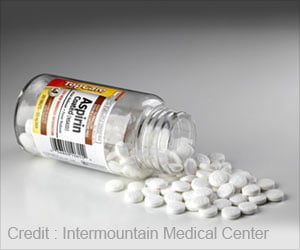Rivaroxaban plus aspirin better than aspirin alone to reduce major adverse events and mortality rates in patients with chronic coronary disease who have had an angioplasty.

‘Dual-pathway treatment containing aspirin and rivaroxaban improves outcomes even if a patient had a stent 10 years ago.’
Read More..




It shows that the combination of a small dose of the blood-thinning drug rivaroxaban twice daily plus 100 mg of aspirin once daily was significantly better than only one or the other in preventing heart attacks, strokes and death.Read More..
"There are a lot of patients with stable coronary disease who have stents in their heart arteries. Most commonly, the only blood thinner they are taking is aspirin," Bainey said.
What he wanted to know was whether those patients would benefit in the same way from the COMPASS dual-pathway approach.
Bainey and colleagues from around the world focused on a subgroup of nearly 10,000 COMPASS participants who had previously had an angioplasty with a stent inserted in blood vessels in the heart, and found that the treatment did lead to better health outcomes in that group, reducing heart attacks, strokes and deaths.
The interesting twist, Bainey said, is that his study also showed that the time between a patient's prior coronary intervention and starting dual pathway treatment made no difference in improving the health outcomes for these patients.
Advertisement
The dual-pathway treatment has been approved by Health Canada for use in patients with chronic coronary or peripheral disease. Thanks in part to COMPASS, Bainey is hoping his research will encourage more cardiologists and physicians to prescribe it to patients with or without a prior stent.
Advertisement
"So when you have a drug that has been shown to improve a patient's survival, you really hope that it takes off as standard of care."
Source-Eurekalert











